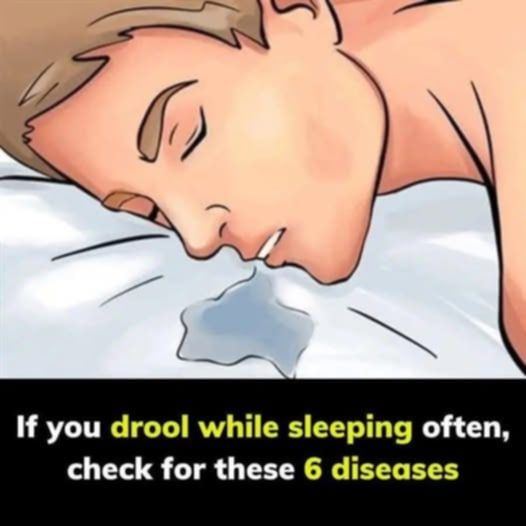When 25-year-old programmer Xiao Liang from China noticed he was drooling excessively in his sleep, he was more embarrassed than alarmed. But when the problem didn’t go away, he decided to visit a doctor—and that decision may have saved his life.
A routine CT scan revealed early signs of blocked cerebral blood vessels. While Xiao Liang hadn’t experienced any serious symptoms beyond the drooling, the condition could have led to a stroke if left untreated. Thanks to early detection, he was able to take preventive action.
Why Do Adults Drool in Their Sleep?
Occasional drooling during sleep isn’t usually cause for concern. However, consistent or excessive drooling can sometimes indicate an underlying health issue. Some of the common causes include:
Mouth Breathing: Congestion or nasal blockages can cause someone to breathe through their mouth during sleep, leading to drooling.Fatigue or Stress: When the body is extremely tired or under stress, it can affect muscle control—making it harder to keep saliva inside the mouth.
Sleeping Position: Lying on the stomach or side can cause saliva to collect and escape more easily.
Medical Conditions: Conditions such as GERD, oral infections, facial paralysis, Parkinson’s disease, or issues with blood circulation in the brain—like Xiao Liang experienced—can lead to drooling.
Tips to Reduce Nighttime Drooling
If drooling has become a frequent issue, these strategies may help:
Sleep on Your Back: This position minimizes the effect of gravity, keeping saliva where it belongs.Treat Allergies or Sinus Issues: A clear nose means you’re more likely to breathe through it, reducing mouth breathing and drooling.
Improve Oral Hygiene: Regular brushing and flossing can prevent infections that may increase saliva production.
Address Underlying Conditions: Persistent drooling should be discussed with a healthcare provider to rule out or treat any contributing medical issues.When to See a Doctor
While it might seem like a minor annoyance, excessive drooling—especially when it begins suddenly or is accompanied by other changes—can sometimes be an early warning sign of a more serious problem. As Xiao Liang’s story shows, listening to your body and seeking help early can make a critical difference.
The Bottom Line: Don’t ignore sudden changes in your body, even if they seem small. What starts as a simple issue could be a signal worth investigating—for your health and your future.
